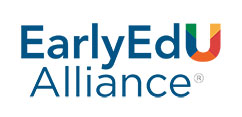Skip to content
California Transitional Kindergarten Case Study
- Mixed delivery system
- Most states support Pre-k programs in public, private, and nonprofit settings. Mixed model delivery systems offer families affordable program choices that are within a manageable distance from their homes.
- Pre-k
- Pre-kindergarten refers to any structured learning programs for children in the year before they begin K–12 education. These programs, which vary in size, access, financing, and structure across states and localities, are administered in public, private, and nonprofit settings, with varying degrees of government support and regulation.
- Preschool
- This broad term refers to any group learning activity for children before they enter K–12 education. It is most often used to identify early learning programs for children older than 3 and younger than 5 years.
- School readiness
- Head Start defines school readiness as “children possessing the skills, knowledge, and attitudes necessary for success in school and for later learning and life.” This includes physical, cognitive, and social and emotional development.
- Transitional Kindergarten (TK)
- TK is the form of Universal Pre-k that California will offer to all 4-year-old residents in public schools by the end of the 2025–26 school year. The state launched TK in 2012, and in 2021, began to implement a phased-in, statewide program open to all 4-year-olds.
- Universal pre-k
- A widely held goal of local and state early learning policy, Universal Pre-k offers structured care and learning environments to all age-eligible children in the year before kindergarten, usually with some form of government support.
Scroll To Top
